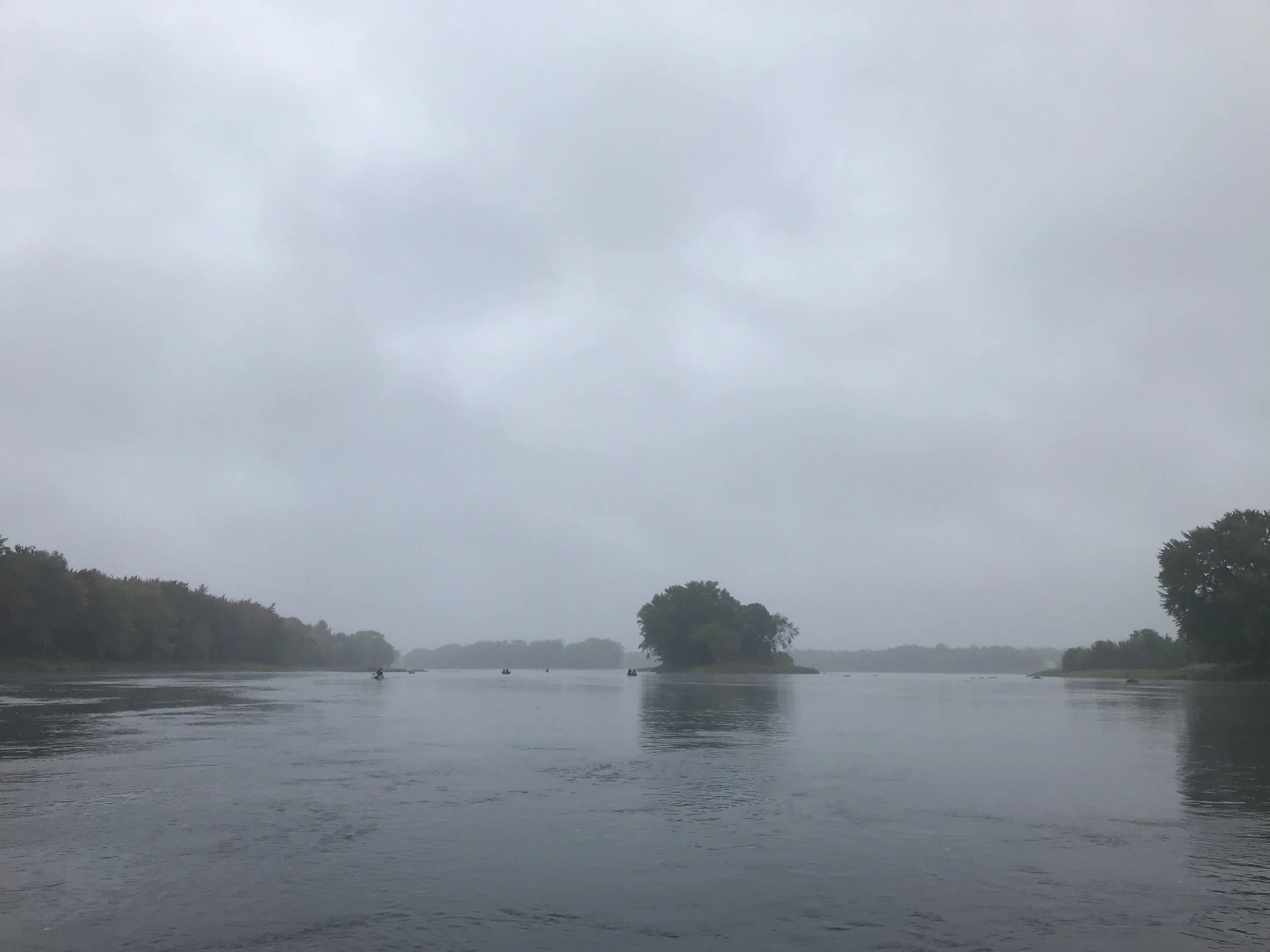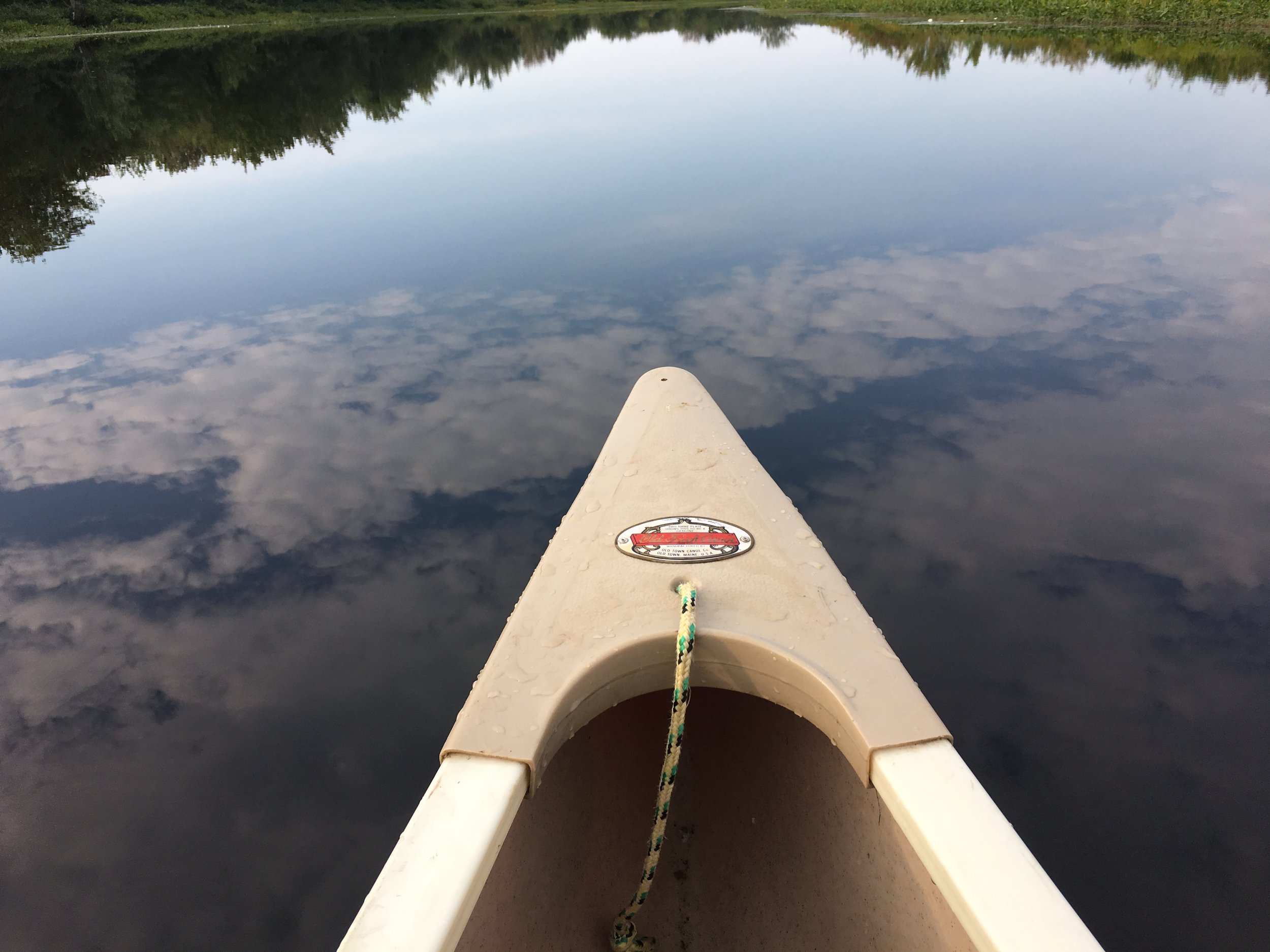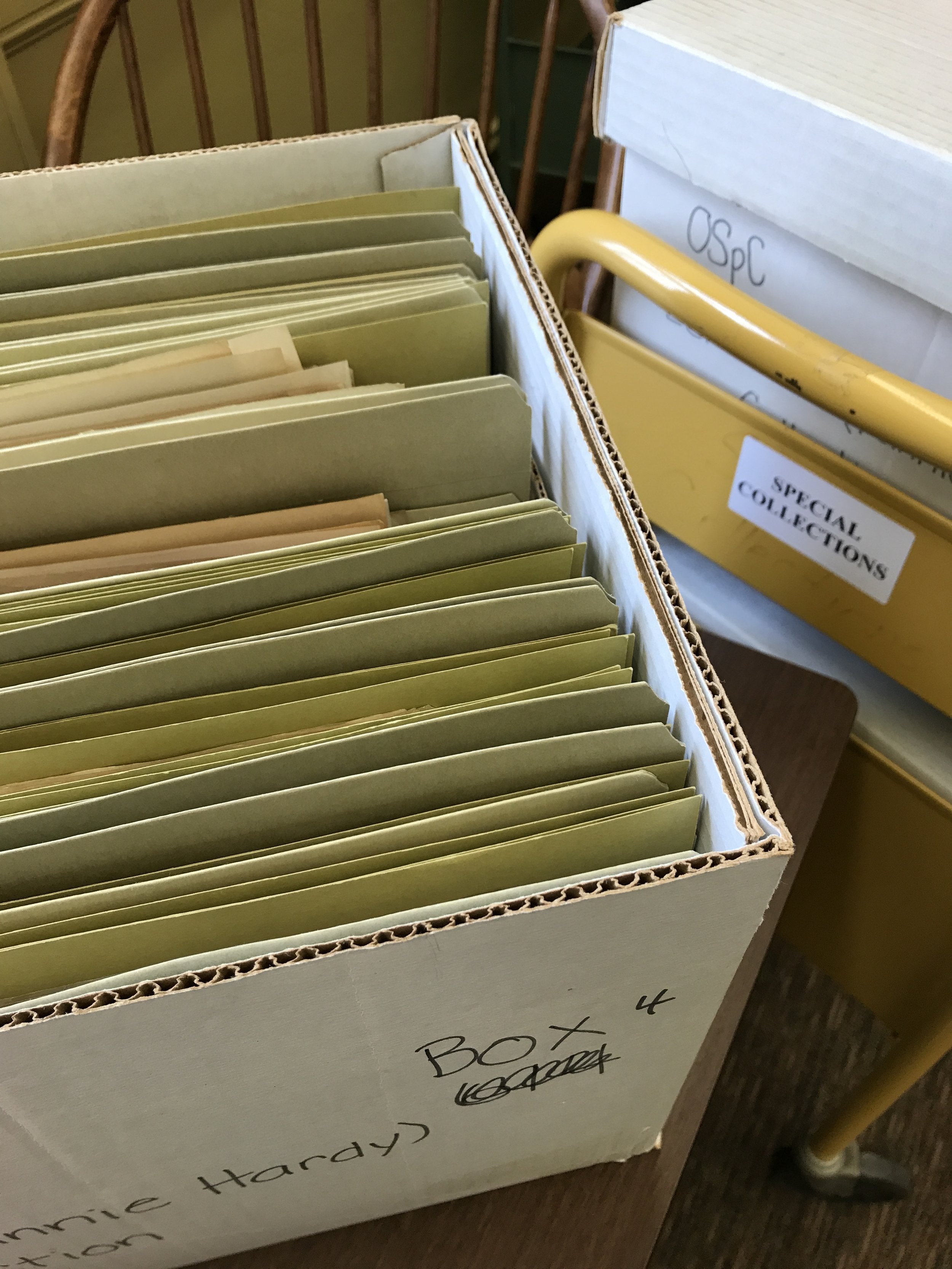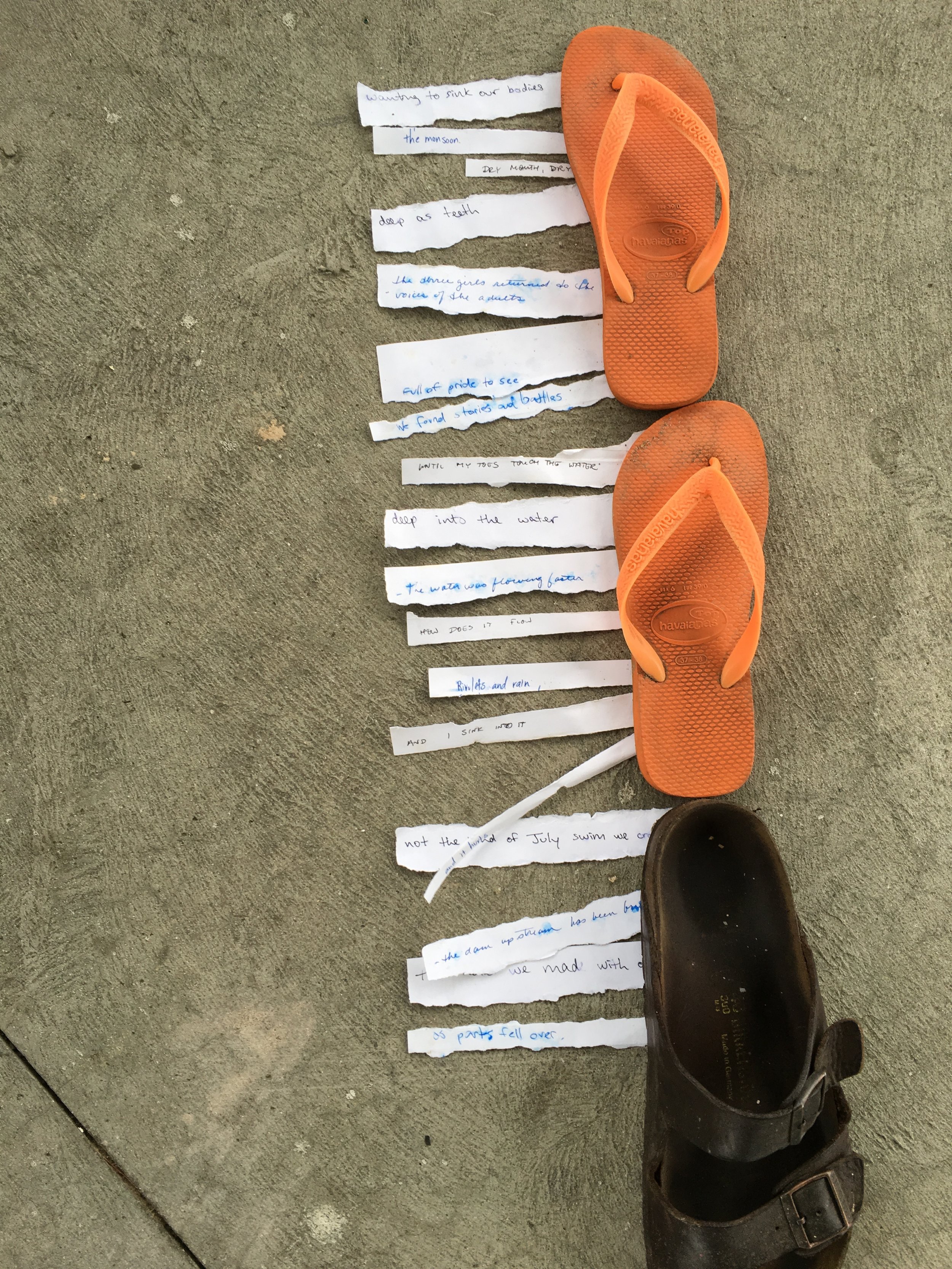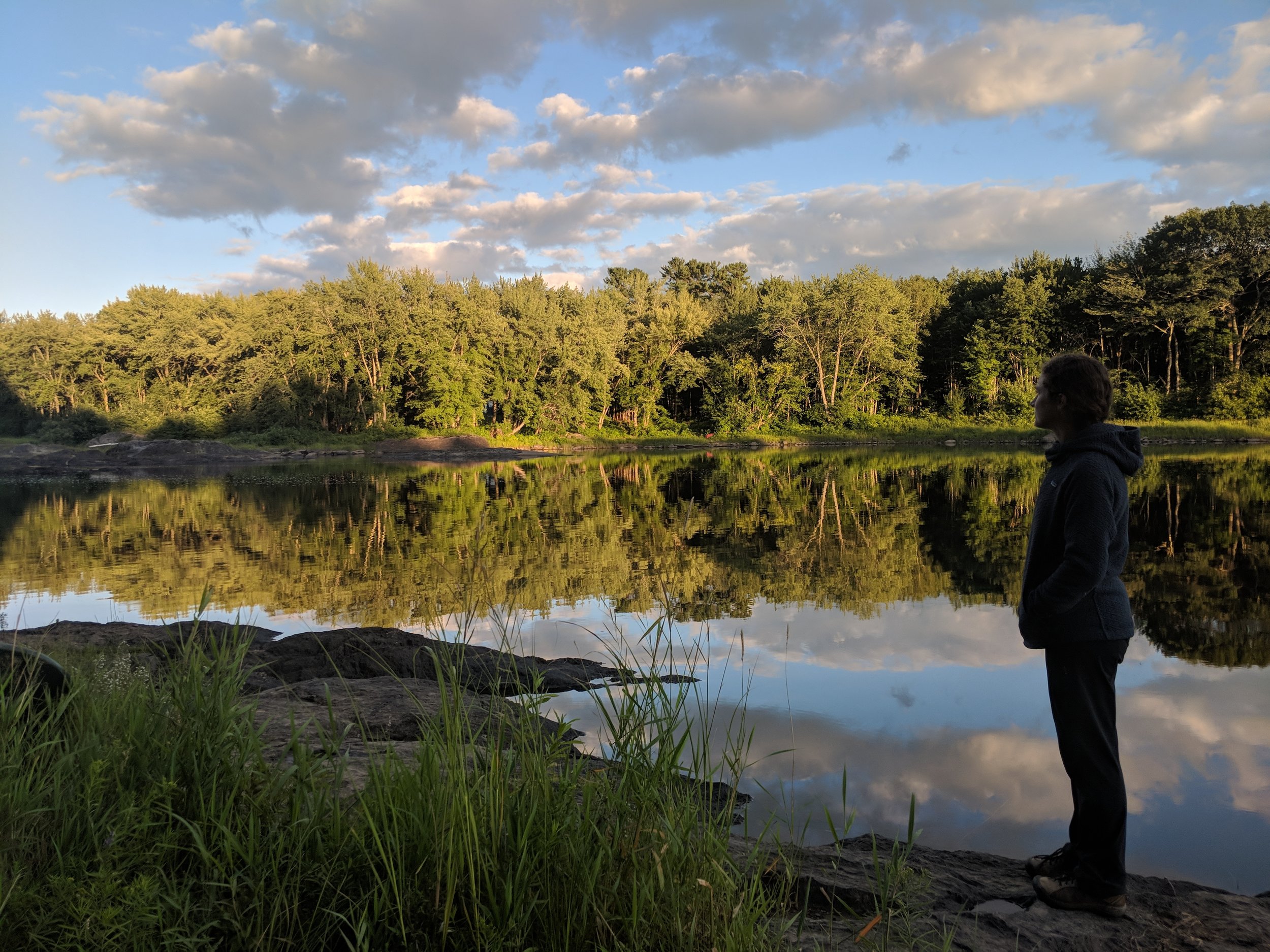In Kinship Collective
In Kinship Collective is Lilah Akins, Cory Tamler, Jennie Hahn, Emilia Dahlin, Devon Kelley-Yurdin, Darren Ranco, and Tyler Rai. An interdisciplinary and cross-cultural group, our learning and creation process follows the tradition of Wabanaki Guiding and centers Indigenous knowledge and experience. In September of 2021, In Kinship Collective produced a sunrise to sunset performance gathering held at multiple sites along and with pαnawάhpskewtəkʷ, the Penobscot River. We are now creating new interdisciplinary works in conversation and relationship with Wabanaki guides and watersheds.
““As Wabanaki people we have long traditions of guiding, which is an attachment to place on the one hand, but also a framework of understanding those places through our experience and knowledge that is specifically meant for non-Wabanaki people. With this project, we are calling on that tradition. A lot of my work is about building deeper and better relationships, between universities and researchers and communities and now artists. For me this is a passion project because it cuts to the quick of how promising that work can be but also how difficult it is.” ”
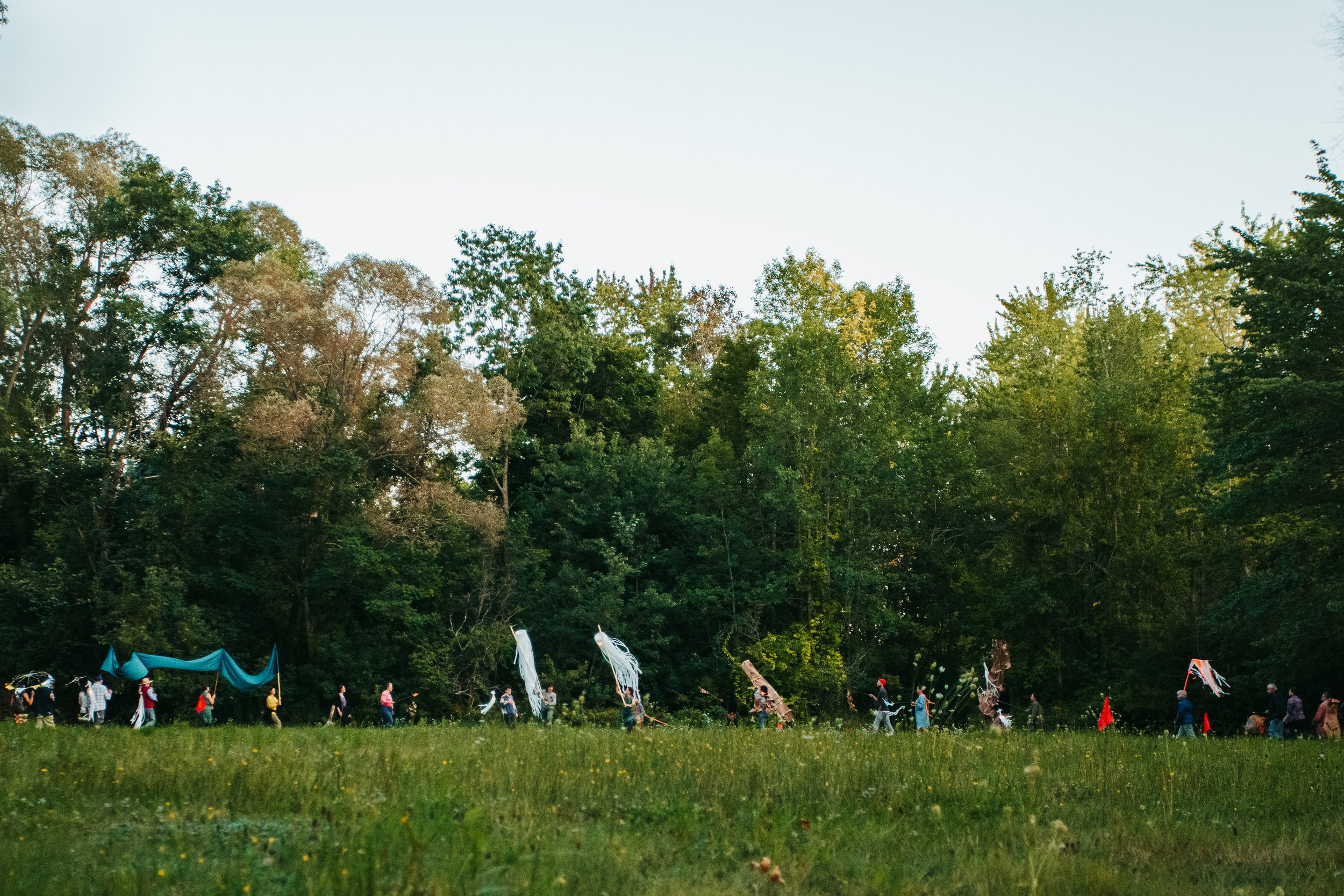
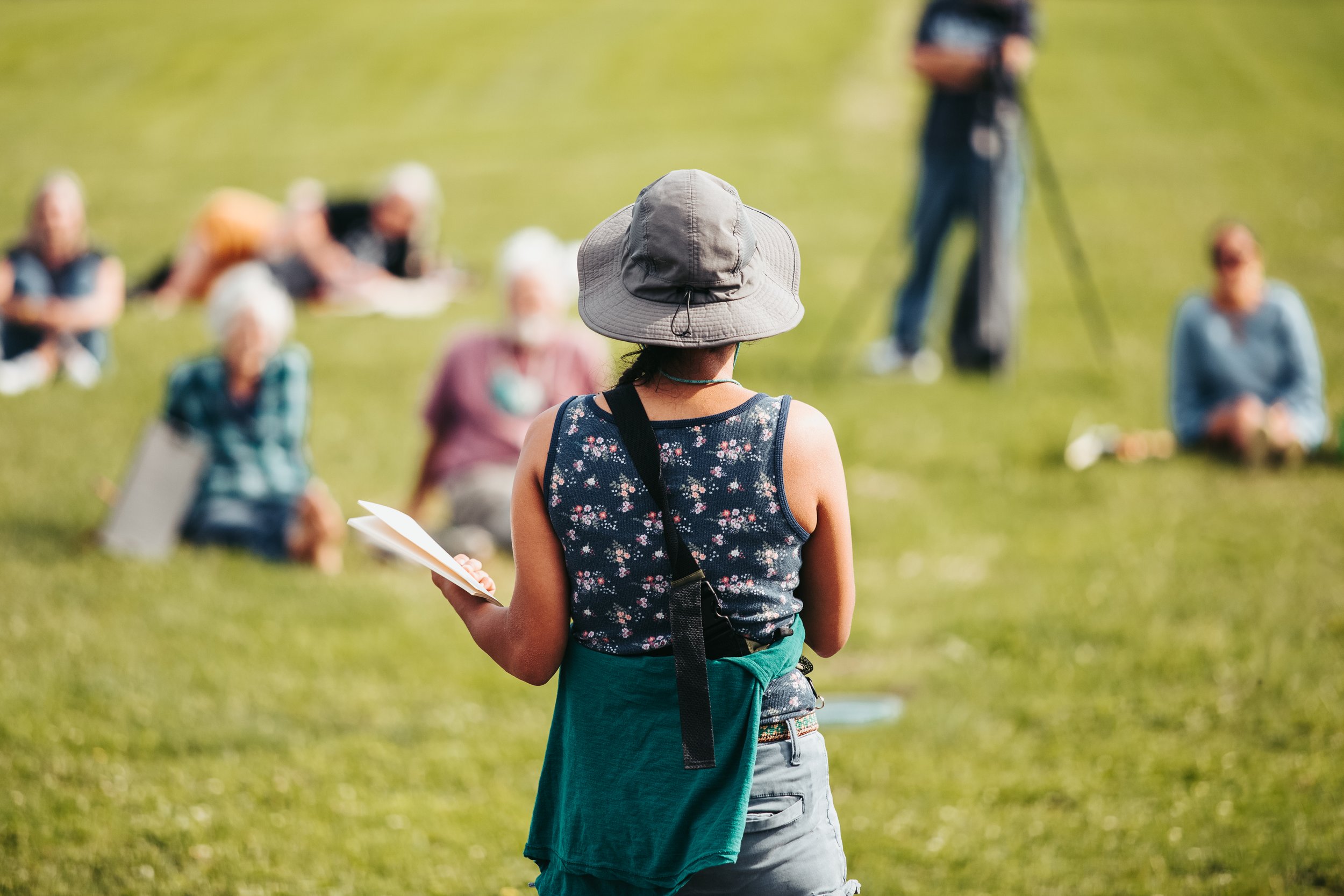
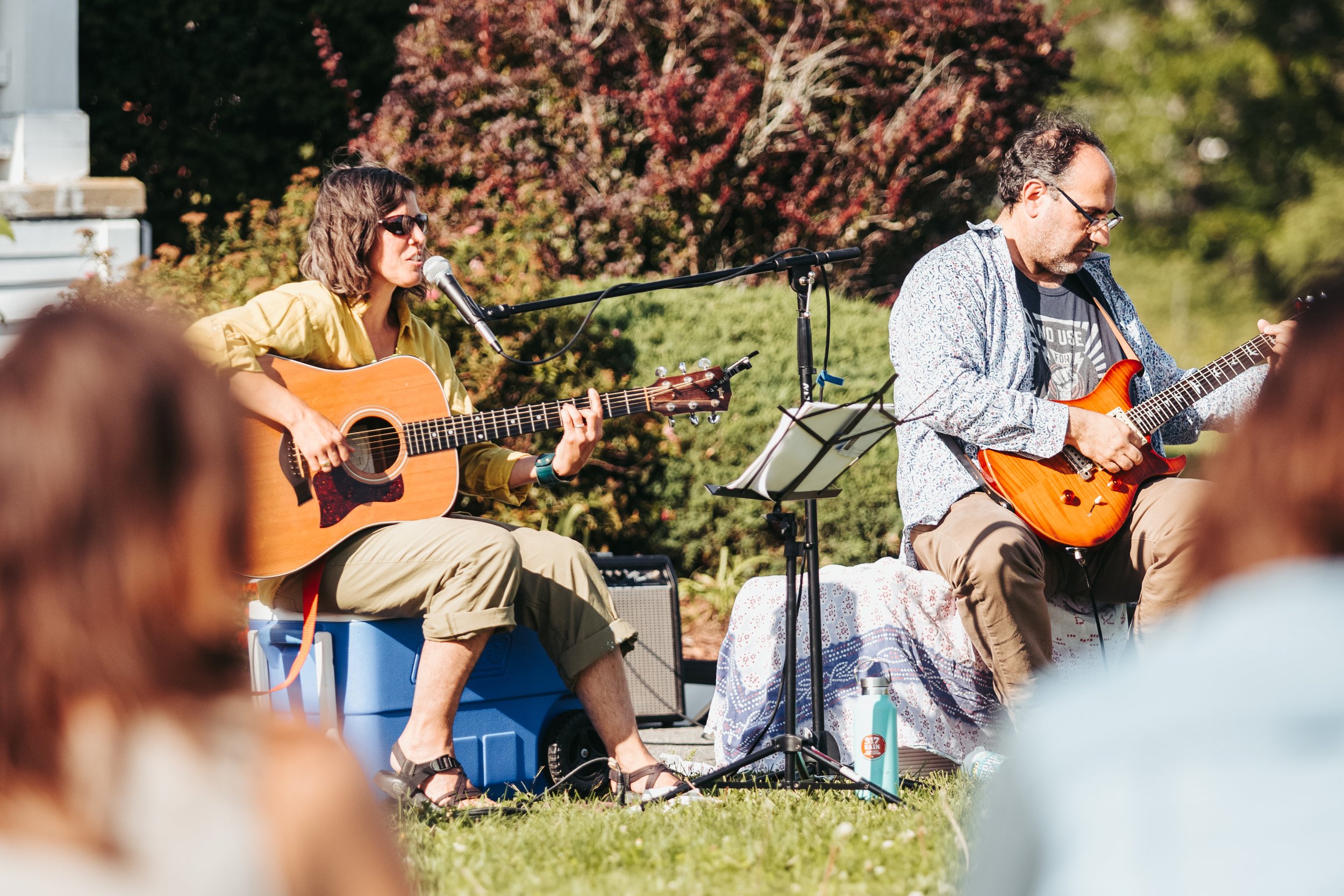
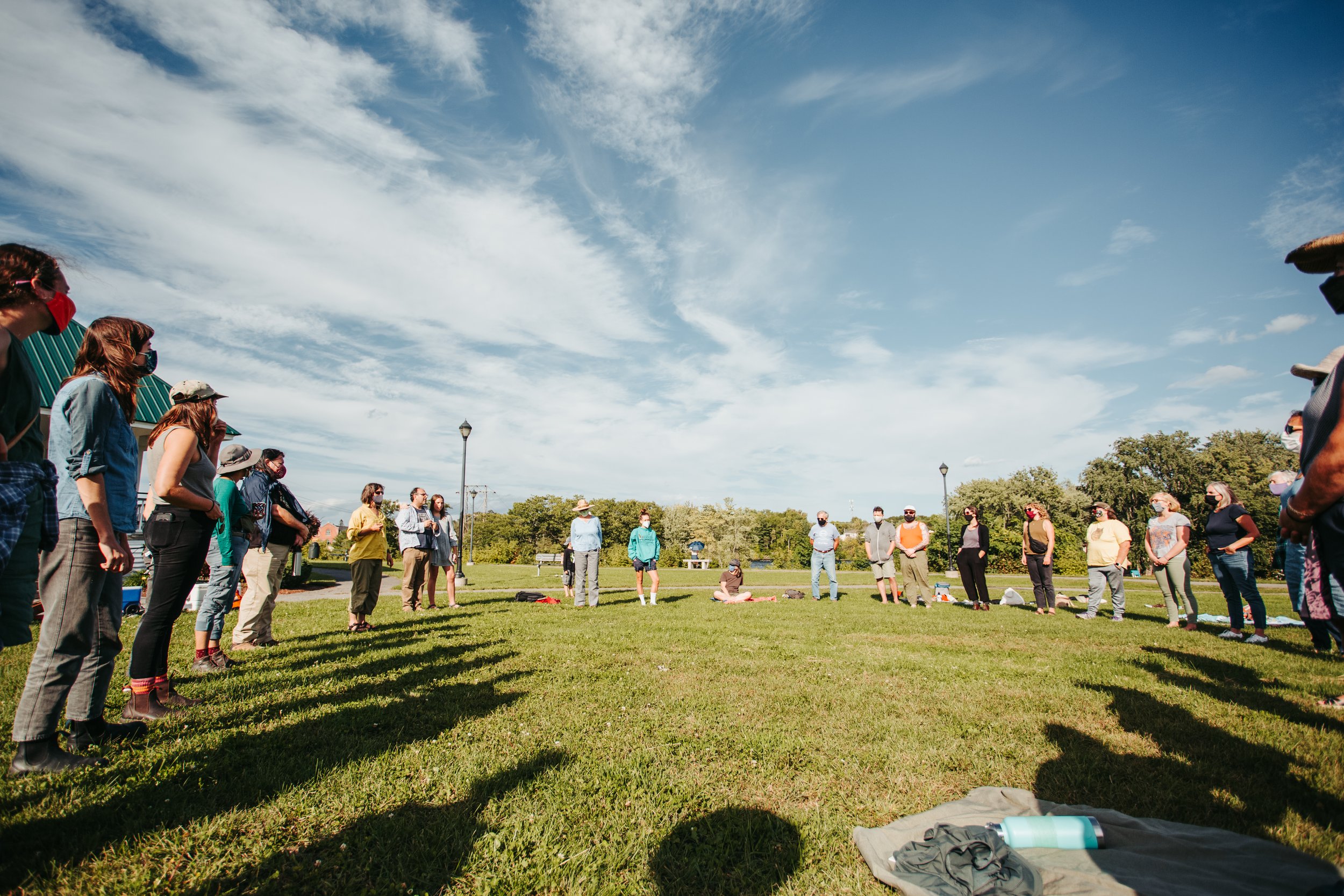
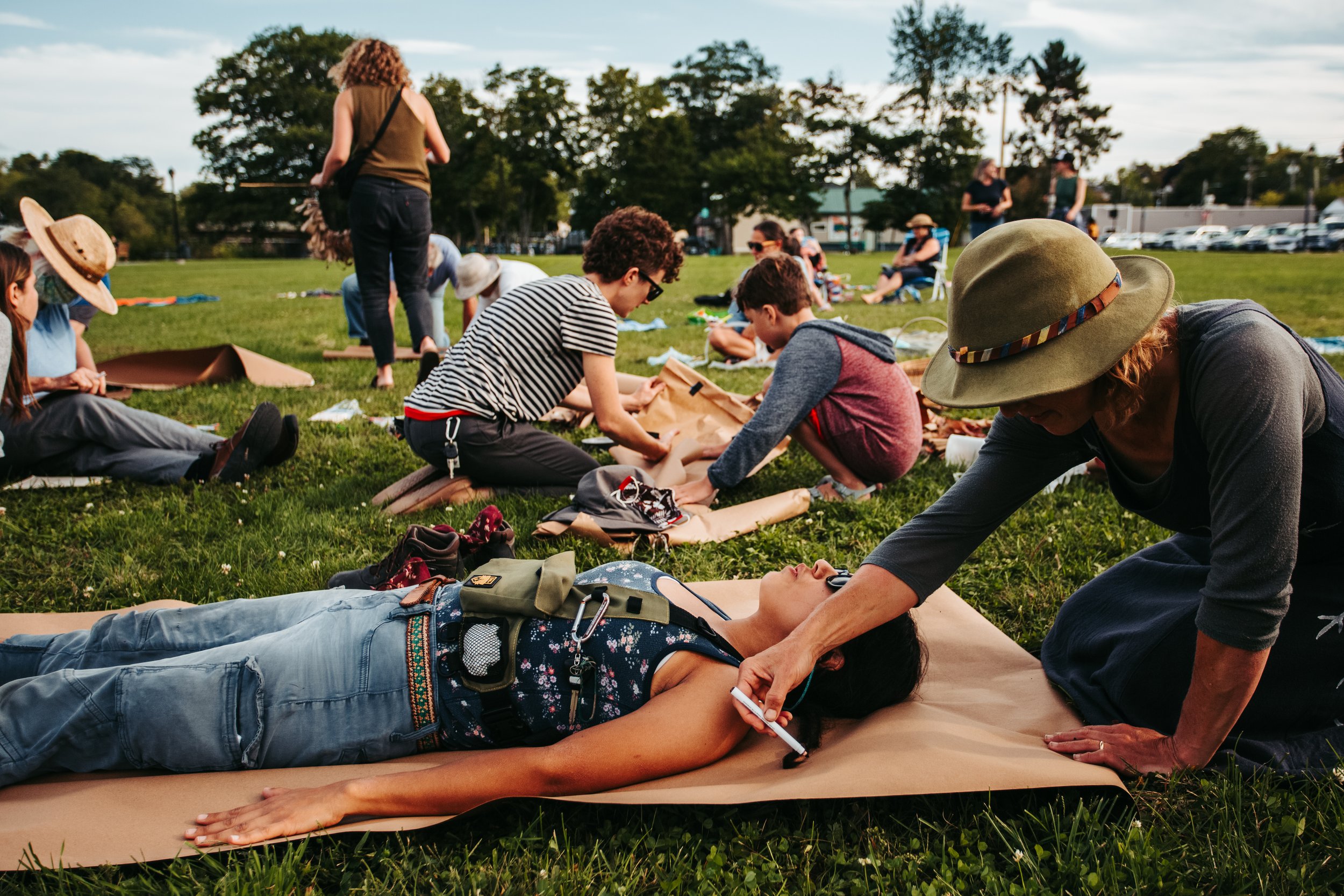
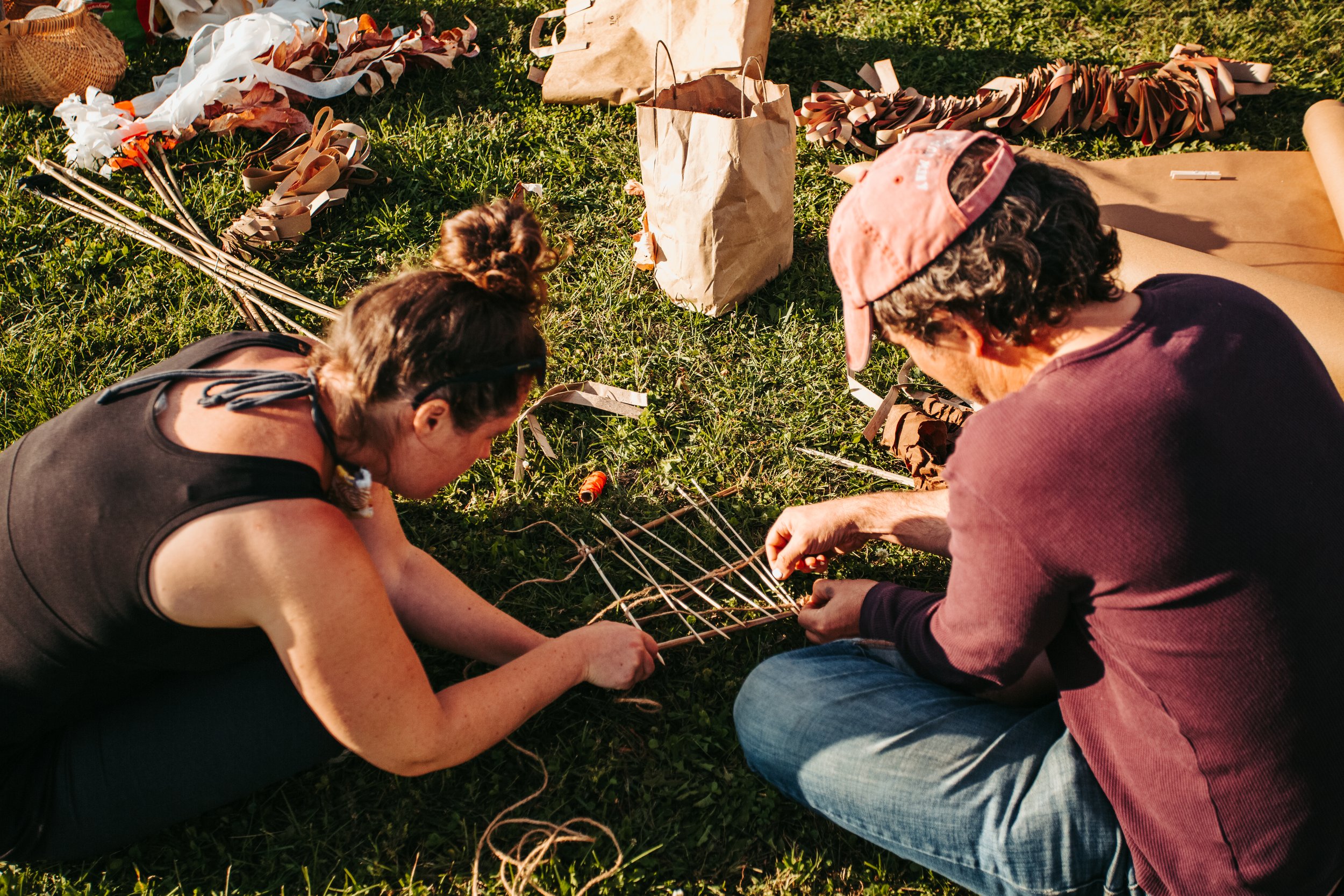
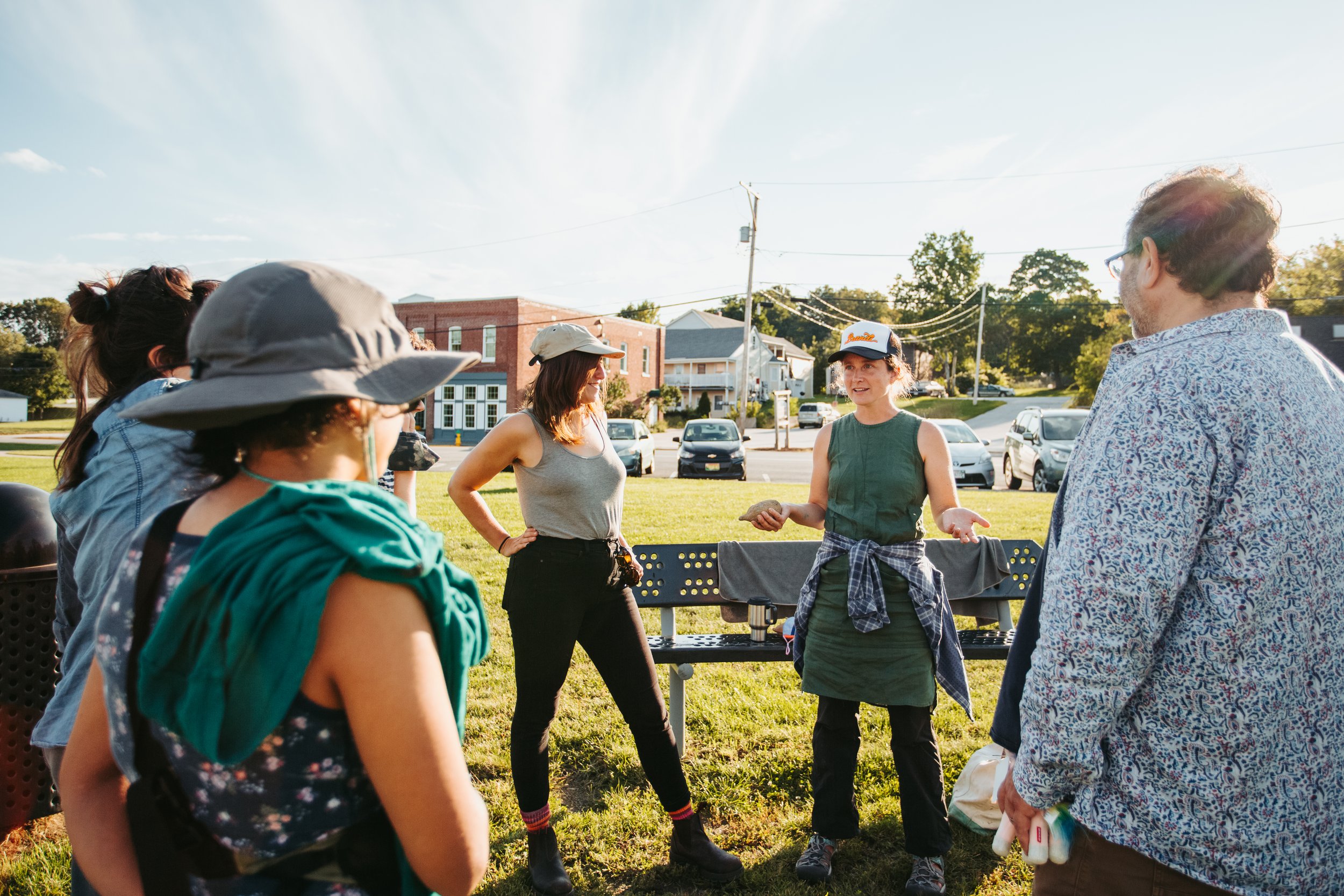
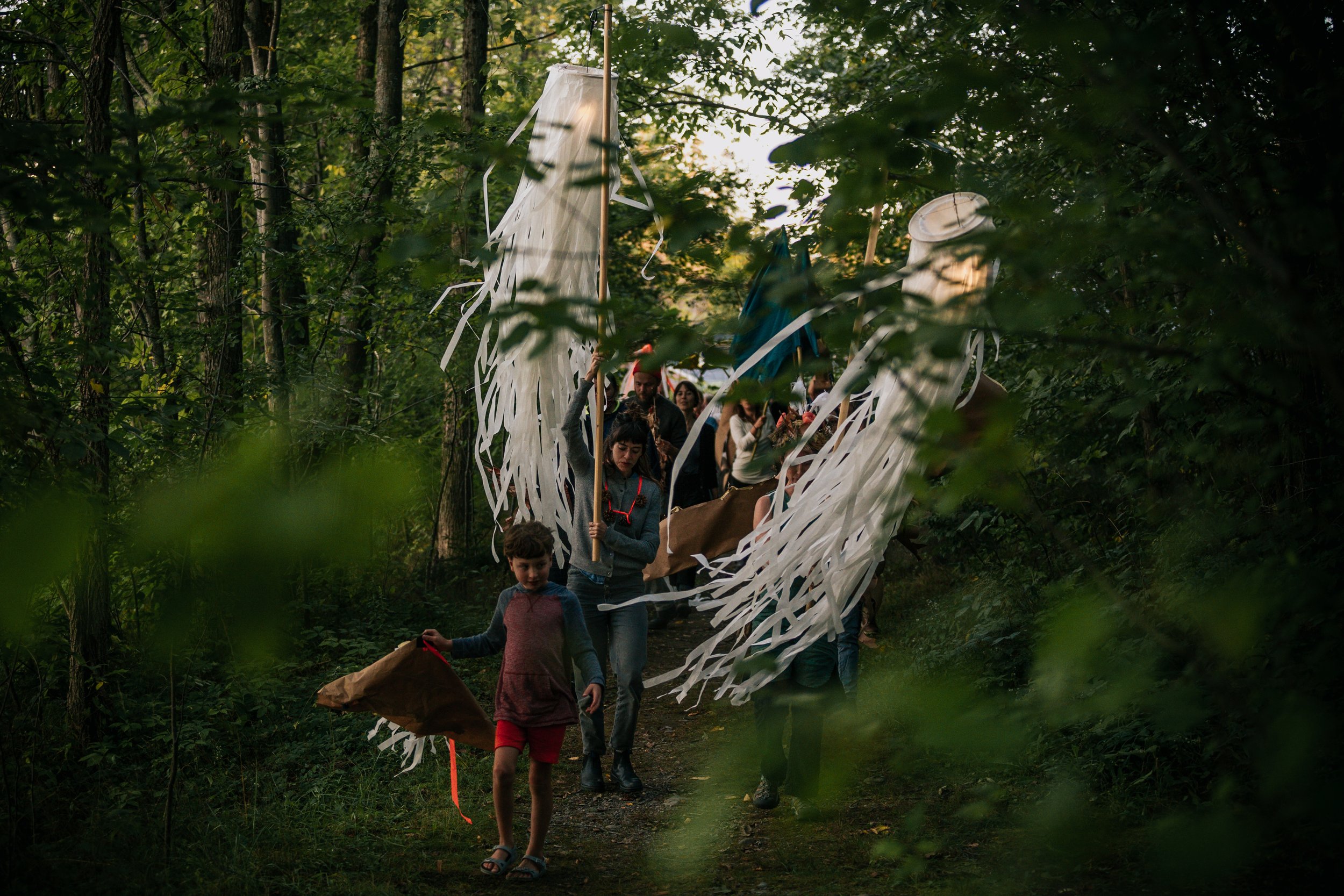
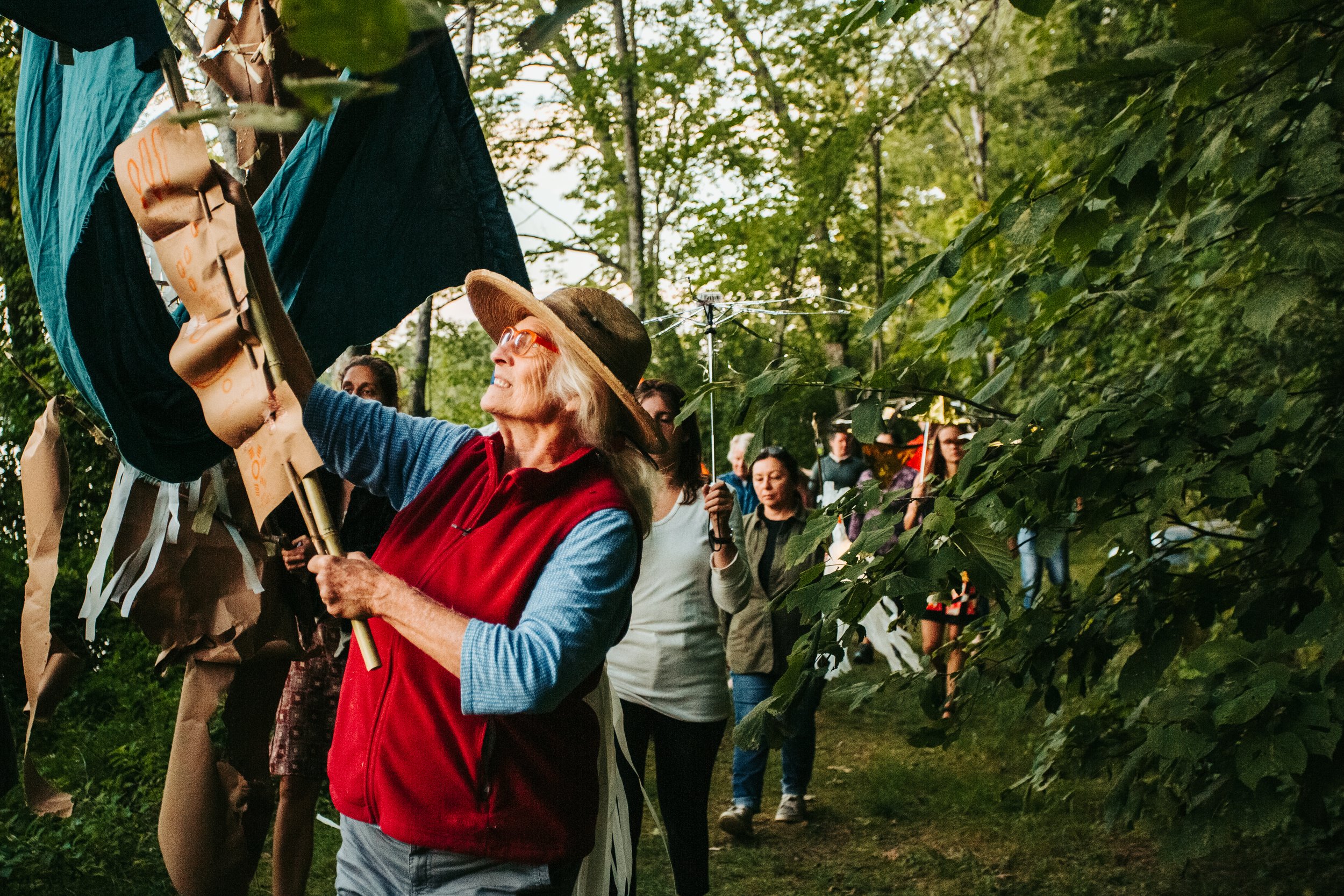
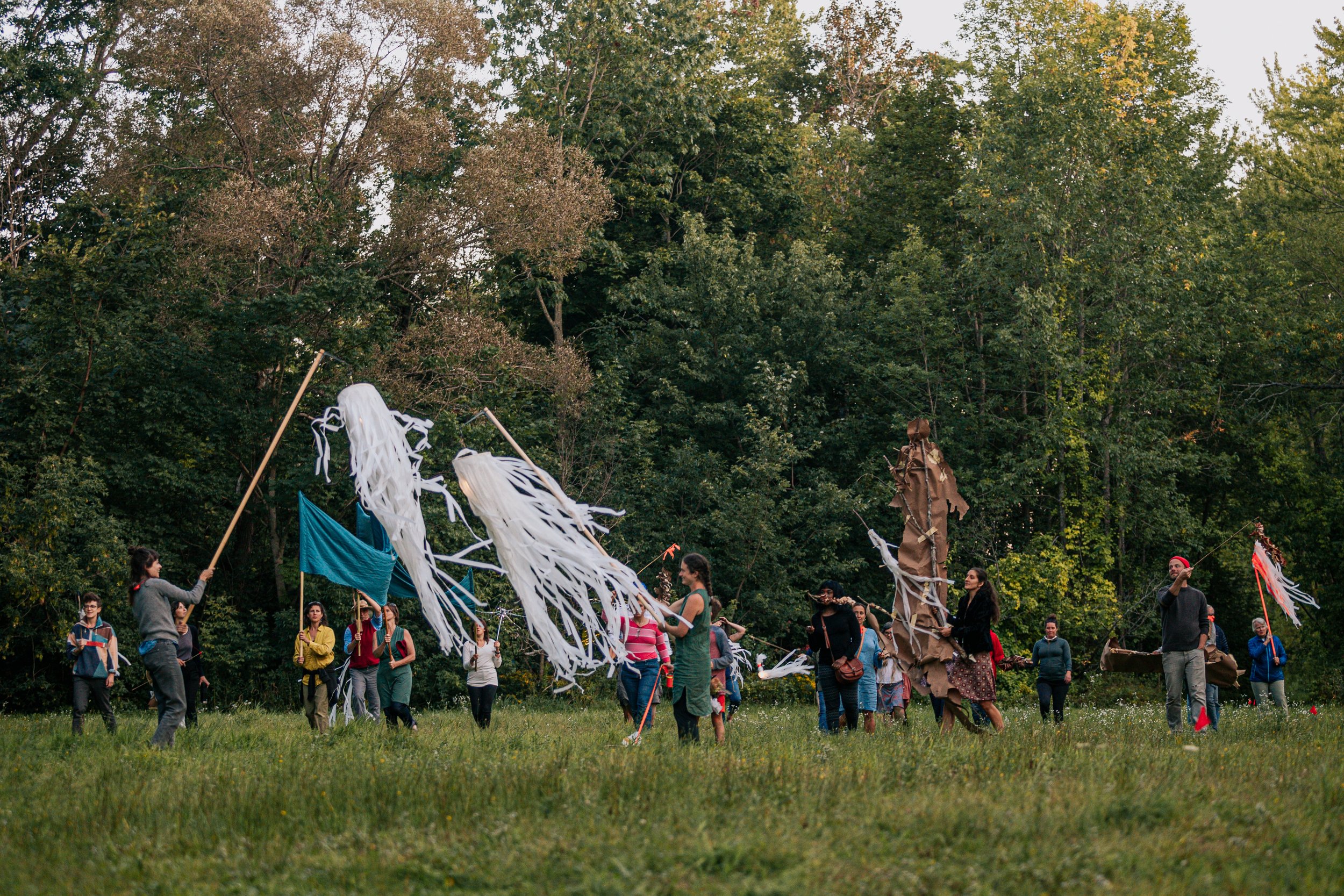
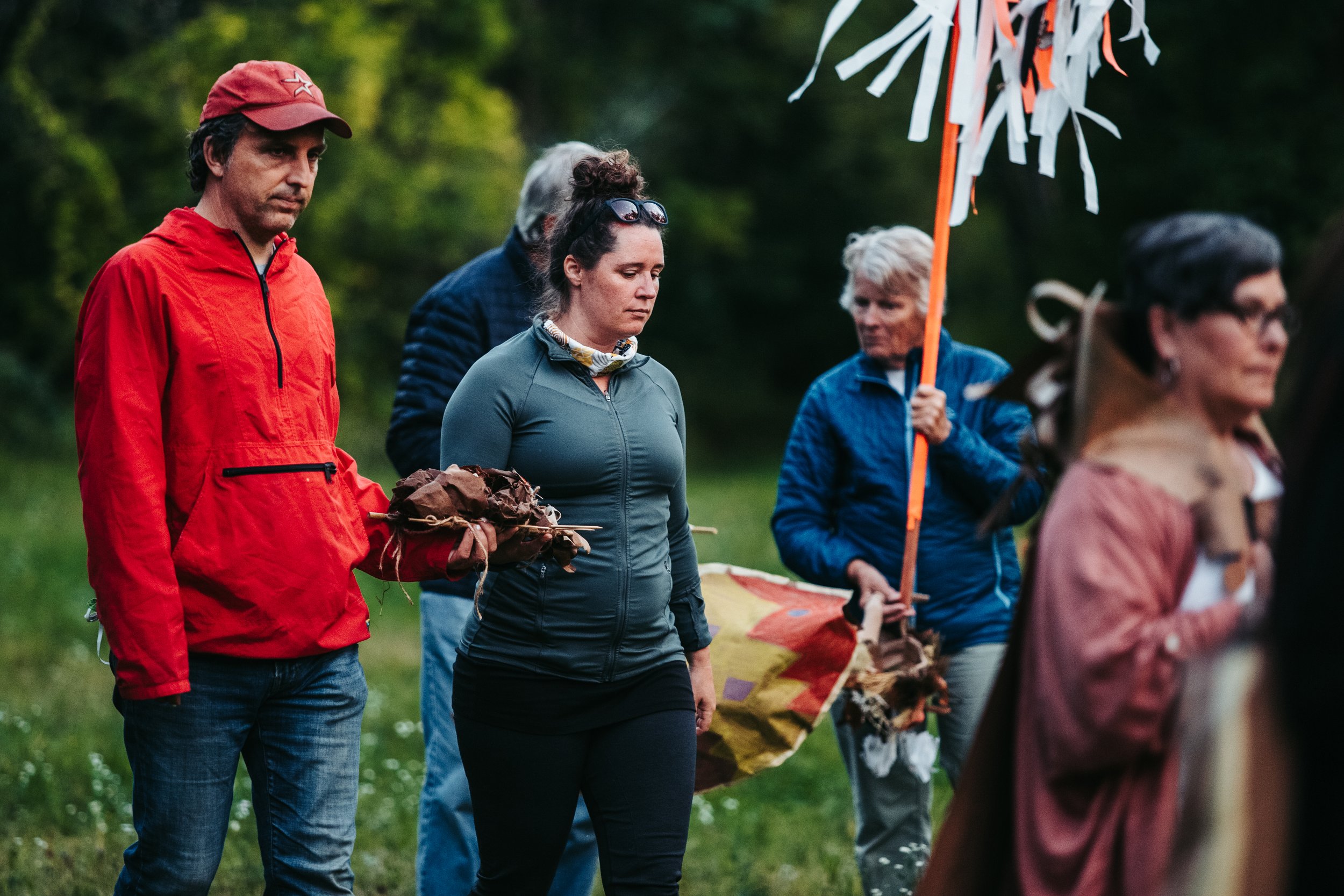
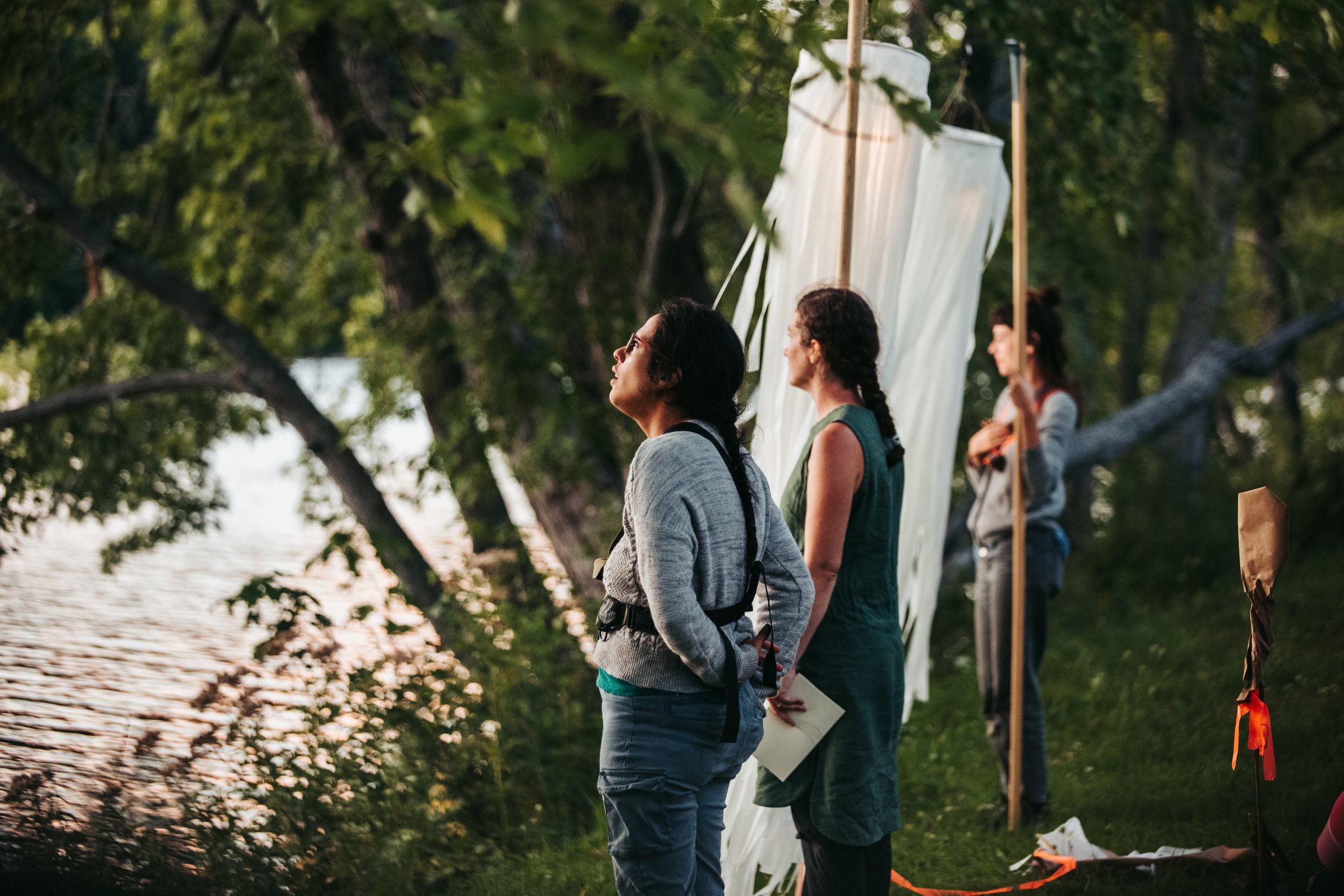

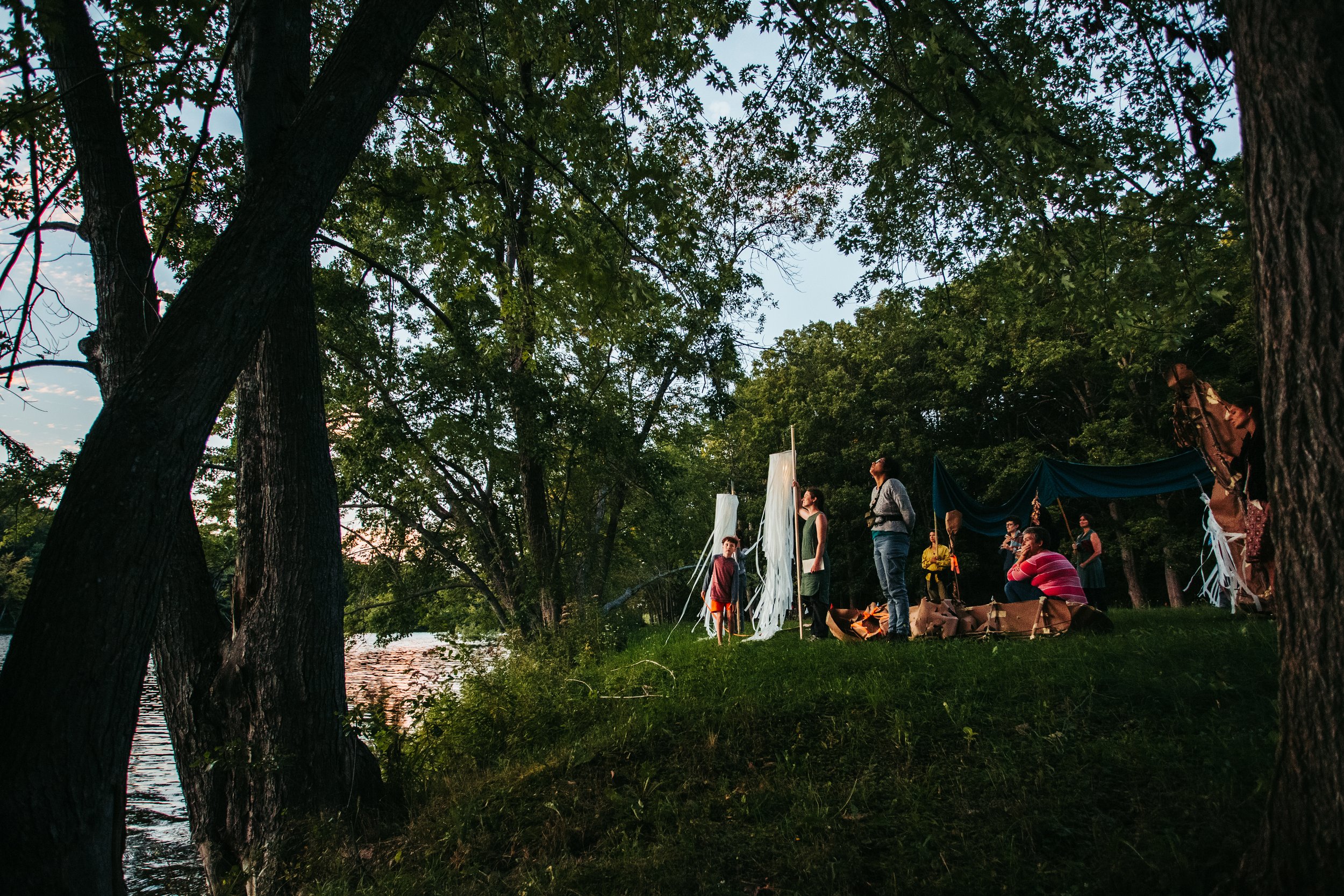
In Kinship Fellowship Performance Gathering, September 2021. Photos by Robyn Nicole Film and Photo
Mapping the story: ABOUT in kinship collective
What possibilities emerge when we look at social repair and environmental care as public, creative acts? In Kinship Collective emerged from the In Kinship Archives & Performance Fellowship. The fellowship was a research and creation process that followed the tradition of Wabanaki Guiding, connecting Native and non-Native people to place through experience, language, and story. In May 2019, four Fellows were chosen based on an open application process, and our collective exploration began. Fellows and facilitators embarked on an experiment with learning and performance approaches to understand stories and histories of the Penobscot River and watershed. Fellowship activities were led by Penobscot Nation partners and centered Indigenous knowledge and experience. Designed to be seeds rather than final products, project activities encouraged Fellows to continue working together, working in the archives to which they were introduced, and working in embodied ways with the Penobscot River well after the completion of the initial Fellowship year.
Following two years of collaborative learning, the In Kinship Fellowship group produced a sunrise to sunset performance gathering in September of 2021. This event was held at multiple sites along and with pαnawάhpskewtəkʷ, the Penobscot River. We are now collaborating as an ongoing collective to create new interdisciplinary works in conversation and relationship with Wabanaki guides and places.
This project began with a year of conversation between Darren Ranco, Ph.D., Jennie Hahn, and Cory Tamler about how settler colonial individuals can ethically participate in shifting public understanding of our shared environments and histories, and how creative intersectional dialogue between Native and non-Native people might productively function. This project views a plurality of voices situated within Indigenous guidance as an approach toward, and modeling of, equitable cross-cultural practice.
We understand guiding as a point of contact and exchange;
Wabanaki guiding in particular is an exchange between Indigenous and settler colonial peoples, simultaneously cultural and economic. Records of such guided trips (such as, famously, Henry David Thoreau's trips guided by Joseph Polis and other Wabanaki guides as recorded in The Maine Woods) are rich and complicated historical documents that record Indigenous histories alongside settler colonial histories. The In Kinship Collective has been following a tradition of Wabanaki guiding both by reading the aforementioned kinds of archival materials (with and against the grain), and by enacting guiding practice with Wabanaki guides on the Penobscot River.
We are situated: A guided experience requires an understanding of each our own situatedness – in the experience, the knowledge, and the collective conversation.
This is a story that holds multiple situated perspectives, in which a respect for the particular knowledges embedded in Wabanaki experience can be simultaneously held with an ethos of mutual guiding. This is a story in which Wabanaki perspective includes a diverse array of relationships to community, place, and ancestral knowledge. This is a story in which non-Native experience contains a multitude of relationships to this watershed, places of origin, histories of oppression, and ongoing colonization.
This learning is relationship-driven and based in a practice of “not knowing”.
Our invitations to each other, and the richness of our resulting experiential dialogue, are built on a foundation of entangled, embedded relationship and care that spans cultures and temporalities. One of the central practices we are exploring, disseminating, and sitting with is a commitment to “not knowing” for extended periods of time. This embrace of sitting with the unknown (unknown creative outcomes, solutions, and next steps) enables mutual awareness and collective care in relationships that determine the creative work, rather than the other way around.
in kinship collective
Lilah Akins is an artist and filmmaker, who recently earned her second BA at the University of Southern Maine's Geography-Anthropology program with a focus in Cultural and Natural Heritage Management. Lilah has been the Wabanaki Outreach Coordinator for Nibezun and currently works with
Wabanaki Public Health & Wellness. She was born and raised on Oahu, Hawaii, and is an enrolled member of the Penobscot Nation and also of Jewish, Cherokee, and settler-colonial descent.
Emilia Dahlin (http://emiliadahlin.com/) is a singer, songwriter, and teaching artist who's interested in what creates and sustains healthy communities. She garners great joy from collaborating and co-creating with young, budding music-makers to elevate their voices. Emilia believes that music and storytelling are are essential to our being and some of the most powerful tools to foster connection between people and to create positive social change.
Jennie Hahn is an interdisciplinary civic performance artist committed to social repair and environmental care in Wabanaki/Maine, a place with which she is in multi-generational, settler colonial relationship. As a producer of community-based theater and performance, Jennie has developed multi-year and multi-partner performance projects with Maine farmers (Farms & Fables, 2011), municipal/state agencies (Maine Department of Agriculture, Conservation and Forestry, 2014), and fisheries biologists (In Kinship, 2016). Individually, Jennie works in video, writing, and performance to create speculative storytelling processes that practice equitable relations between and among humans and the more-than-human world. Jennie is an MFA candidate in Intermedia at the University of Maine.
Devon Kelley-Yurdin (http://www.devonkelley-yurdin.com/) is an interdisciplinary artist, educator, and cultural organizer based in Portland, Maine. They were born and raised in Vermont and hold a BFA in Communications Design & Cultural Studies from Pratt Institute in Brooklyn, NY. They are grounded in the belief that creativity can be found everywhere and plays a deep role in holistic community care; play, curiosity, queerness, accessibility, equity, and skill-building drive their work, relationships, and life experiences. Their work spans traditional media (printmaking, cut-paper, installation), design/illustration/art direction, event production, arts administration, and community organizing.
Tyler Rai (https://www.tylerrai.com/) is an improvisor, dancer, and collaborative artist currently based in Amherst, Massachusetts (Nipmuck/Pocumtuc territory). Through performance and movement improvisation, her research questions how we embody kinship and relational empathy with the other/more-than-human-world. She is currently developing a body of research focused on grief and reverence for the glacial bodies of this earth.
Darren Ranco, Ph.D. is a faculty member with the University of Maine’s Department of Anthropology, as well as the Chair of Native American Programs and Coordinator of Native American Research. His research focuses on the ways in which indigenous communities in the United States resist environmental destruction by using indigenous diplomacies and critiques of liberalism to protect cultural resources, and how state knowledge systems continue to expose indigenous peoples to an inordinate amount of environmental risk. Ranco is a member of the Penobscot Nation, and is particularly interested in how better research relationships can be made between universities, Native and non-Native researchers, and indigenous communities. Ranco is also involved in developing mentoring programs for Native American students at the University of Maine and developing a statewide STEM education program for Native American students.
Cory Tamler (www.corytamler.com) is a writer, translator, and interdisciplinary artist whose practice is rooted in theatre, performance as research, and community organizing. She has created research-based performance projects in the U.S., Germany, and Serbia, and is a core artist with civic arts organization Open Waters (Maine). Cory has been a Fulbright Scholar (Berlin) and a Fellow at the New Museum for Contemporary Art. As a Ph.D. student at The Graduate Center, CUNY, she studies open-ended artistic work from social practice to community-based theatre. She teaches at Brooklyn College and is a member of Commitment Experiment, an experimental performance collective.
About In Kinship
Produced by Open Waters (www.open-waters.org), In Kinship is a multi-year community art and performance project that looks at how we connect and care for each other within the Penobscot River Watershed ecosystem.
In Kinship Fellowship activities were made possible in part through a grant from the Network of Ensemble Theaters’ Travel & Exchange Network (NET/TEN), supported by lead funding from The Andrew W. Mellon Foundation, and by the Kindling Fund, a grant program administered by SPACE as part of the Andy Warhol Foundation for the Visual Arts Regional Regranting Program, and by individual donors.
